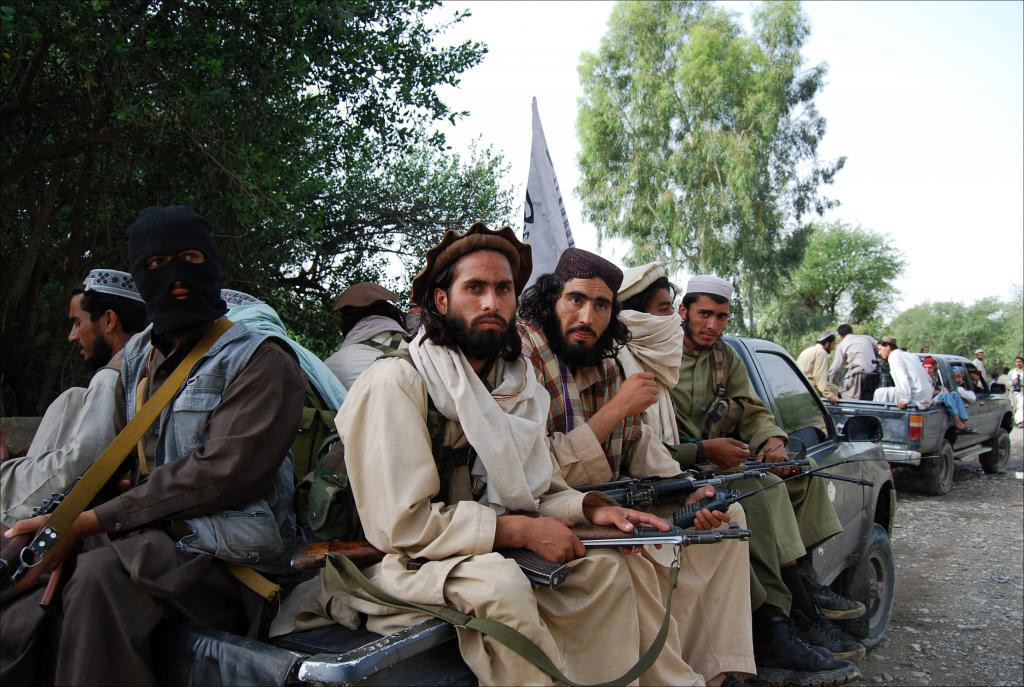
Originally apperad at Katehon
The Taliban has declared that it will not take part in peace talks brokered by representatives of Afghanistan, Pakistan, China, and the United States until the foreign occupation of the country has ended. The future of the negotiation process in Afghanistan is now, as a result, postponed for an indefinite period of time.
Afghanistan has always been a highly important region in terms of geopolitics. For two centuries they have guarded the area that connects the Heartland to Hindustan and the Indian Ocean.
The split within the Taliban
Akhtar Mohammad Mansoor was elected as the new leader of the Taliban in July of 2015 after the rebels confirmed the death of their previous leader, Mullah Omar. His appointment provoked an internal split within the movement. He was accused of having links to the Pakistani Inter-Services Intelligence (ISI), but however, the majority of the Taliban leadership was connected to Pakistani Security forces.
Sources in Taliban circles said that the Taliban representatives in the Middle East, primarily in Qatar, did not support the candidacy of Mullah Mansour. Qatar based representatives of the Taliban also rejected the negotiations between the Taliban and representatives of the official Taliban government that were held in Islamabad in July 2015.
At the same time, the most radical branch of the Taliban, which also rejected the path of negotiations, was re-branded as ISIS, and initiated the conflict against their former brothers-in-arms.
Taliban leader Mullah Akhtar Mohammad Mansour expressed his support for a more continental-orientated strategy. Previously, he made a declaration on the need for the withdrawal of all foreign troops from Afghanistan, without any exceptions, and the abolition of the security agreements with the United States, so that peace can be established in Afghanistan.
In another part of his declaration, the new Taliban leader said that the movement does not represent a threat to the country’s northern neighbors, and that the former Soviet Central Asian countries should not worry about the issue.
This was Mullah Mansour’s first official statement since taking over as head of the Taliban.
The Russian presidential envoy to Afghanistan, Zamir Kabulov, confirmed that they have methods of communication with the new Taliban leadership. Russia also decreased the intensity of their criticism towards the rebel movement.
China continues to see the Taliban as a political force, and continues to promote direct negotiations with them. They maintain ties with the Taliban leadership while, at the same time, ISIS remains openly hostile to Beijing.
The interests of external powers
There is an internal quarrel within the Taliban, as well as internal contradictions between the Afghan and Pakistani establishments, which are related to the interests of external powers (the USA, Qatar, Turkey, Russia, and China).
Like in Syria, Qatar supports the most radical Islamists in Afghanistan. The Afghan branch of the Islamic State operates in the interests of Qatar. The Middle Eastern country is interested in the general destabilization of the situation, and preventing the construction of gas pipelines in the direction of Pakistan, India, and China (the “Peace” pipeline from Iran and Turkmenistan, Afghanistan-Pakistan Pipeline). The interests of Doha, up to this point, coincide with the interests of Ankara, which also seeks to re-orientate the gas flow from both Turkmenistan and Iran.
The US is interested in the continuation of instability in Afghanistan; while Washington verbally supports the negotiation process, in reality it aims to derail it. Stabilization can make certain projects more realizable; ones that can diminish the American influence and increase the Russian and Chinese influence.
China wants to construct a new line of the “New Silk Road” through Pakistan, Afghanistan, and Iran. The project directly contradicts the US’ plans to contain China, maintain pressure on Iran, and control the region as a whole.
Russia plans to construct an oil pipeline to India, which also passes through Afghanistan and Pakistan. This indicates the growth of Russia’s influence in a region that has access to the zone of the Indian Ocean. The project of meridional economic integration directly deters the old Atlanticist Anaconda Strategy toward Russia.
The quarrel within the Taliban reflects the clash of external powers, which attempt to use them in the interests of their own geopolitical strategies. In this battle, the Pakistani establishment is divided: one part continues the old pro-American Atlanticist Strategy (among them are many ISI officials), and another tries to take a new course orientated towards strengthening ties with China and Russia, and the development of mutually profitable projects.





